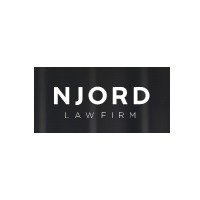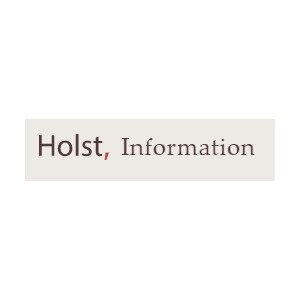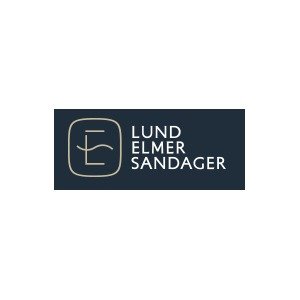Best International Trade Law Lawyers in Copenhagen
Share your needs with us, get contacted by law firms.
Free. Takes 2 min.
List of the best lawyers in Copenhagen, Denmark
About International Trade Law in Copenhagen, Denmark
International Trade Law in Copenhagen, Denmark, is a complex and dynamic field, integral to facilitating the country's trade relations within the European Union and with the wider world. This area of law governs the exchange of goods and services across international borders, addressing issues such as tariffs, import/export regulations, trade agreements, and dispute resolutions. Denmark's strategic location and open economy make it a vital hub for trade, and its legal framework aligns closely with EU regulations, ensuring compliance with European and international trade standards.
Why You May Need a Lawyer
Individuals and businesses may require legal assistance in International Trade Law for various reasons. Common situations include navigating the complexities of import/export regulations, ensuring compliance with EU trade laws, resolving international trade disputes, understanding tariffs and quotas, and drafting or reviewing trade contracts. Legal expertise is essential to avoid penalties, ensure favorable conditions in trade agreements, and protect your interests in case of disputes.
Local Laws Overview
Copenhagen's legal environment for international trade is heavily influenced by both Danish law and European Union regulations. Key aspects include:
- Compliance with EU Trade Regulations: Denmark follows EU single-market rules, which include standardized regulations for the movement of goods and services.
- Customs Procedures: Laws governing the clearance of goods through customs, tariffs, and non-tariff barriers are crucial for traders.
- Trade Agreements: Denmark participates in numerous bilateral and multilateral trade agreements that dictate terms of trade with other countries.
- Intellectual Property Rights: Protection of intellectual property in international trade matters is essential, especially for businesses dealing with technology and creative works.
- Dispute Resolution: Mechanisms are in place for resolving trade disputes, including arbitration and other alternative dispute resolution methods.
Frequently Asked Questions
1. What is International Trade Law?
International Trade Law encompasses the rules and guidelines governing the exchange of goods, services, and capital across international borders, including tariffs, trade agreements, and dispute resolution mechanisms.
2. How does Denmark's membership in the EU affect its trade laws?
As a member of the EU, Denmark's trade laws are heavily influenced by EU directives and regulations, especially regarding tariffs, customs, and trade standards within the single market.
3. Do I need a lawyer to draft an international trade contract?
While not legally required, hiring a lawyer is highly recommended to ensure that contracts comply with relevant laws and adequately protect your interests in international trade.
4. What are the consequences of non-compliance with trade regulations?
Non-compliance can result in penalties such as fines, legal disputes, seizure of goods, and damage to business reputation.
5. How are trade disputes usually resolved in Denmark?
Trade disputes in Denmark can be resolved through litigation, arbitration, or alternative dispute resolution mechanisms, often following international practices and agreements.
6. Are there any specific import/export restrictions in Denmark?
Import/export restrictions are primarily aligned with EU regulations, which may include quotas, tariffs, and embargoes on certain goods or trade with specific countries.
7. What role do tariffs play in international trade with Denmark?
Tariffs are taxes imposed on imported goods, generally harmonized within the EU framework, affecting trade costs and pricing strategies.
8. How can I ensure my business complies with Danish customs laws?
Consulting with a legal expert in international trade can help navigate customs procedures, documentation requirements, and compliance with relevant laws.
9. Are trade agreements legally binding?
Yes, trade agreements are legally binding contracts between countries, outlining the terms and conditions for trade, including obligations and dispute resolution mechanisms.
10. What should I consider before entering a foreign market?
Before entering a foreign market, consider market demand, local regulations, trade barriers, intellectual property issues, and cultural differences.
Additional Resources
For further guidance on International Trade Law in Copenhagen, Denmark, consider the following resources:
- Trade Council of Denmark: Offers support and resources for Danish companies exploring international markets.
- Ministry of Foreign Affairs of Denmark: Provides information on trade policies and international trade agreements.
- Danish Customs and Tax Administration (SKAT): Offers detailed information on customs processes and compliance.
- European Union Trade Helpdesk: A resource for understanding EU trade regulations and requirements.
Next Steps
If you require legal assistance in International Trade Law, consider the following steps:
- Identify Your Needs: Clearly define your legal needs, whether it's contract drafting, dispute resolution, or compliance advice.
- Research Law Firms: Look for law firms in Copenhagen specializing in International Trade Law with a strong track record and expertise.
- Schedule Consultations: Arrange meetings with potential lawyers to discuss your case and evaluate their understanding and approach.
- Verify Credentials: Ensure that your chosen lawyer is qualified and experienced in handling international trade matters.
- Discuss Fees: Clearly understand the fee structure and payment terms before engaging legal services.
With the right legal support, you can navigate the complexities of International Trade Law effectively, securing your business interests in the global market.
Lawzana helps you find the best lawyers and law firms in Copenhagen through a curated and pre-screened list of qualified legal professionals. Our platform offers rankings and detailed profiles of attorneys and law firms, allowing you to compare based on practice areas, including International Trade Law, experience, and client feedback.
Each profile includes a description of the firm's areas of practice, client reviews, team members and partners, year of establishment, spoken languages, office locations, contact information, social media presence, and any published articles or resources. Most firms on our platform speak English and are experienced in both local and international legal matters.
Get a quote from top-rated law firms in Copenhagen, Denmark — quickly, securely, and without unnecessary hassle.
Disclaimer:
The information provided on this page is for general informational purposes only and does not constitute legal advice. While we strive to ensure the accuracy and relevance of the content, legal information may change over time, and interpretations of the law can vary. You should always consult with a qualified legal professional for advice specific to your situation.
We disclaim all liability for actions taken or not taken based on the content of this page. If you believe any information is incorrect or outdated, please contact us, and we will review and update it where appropriate.

















